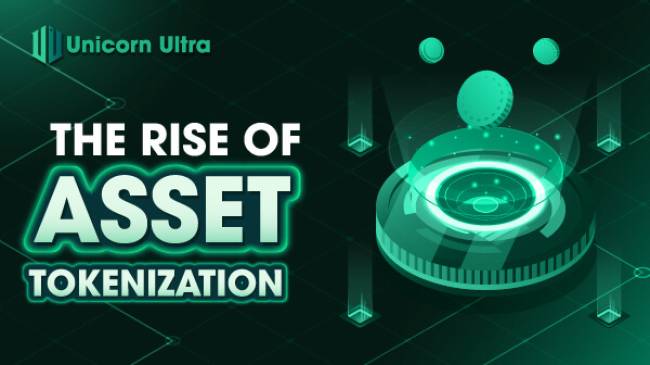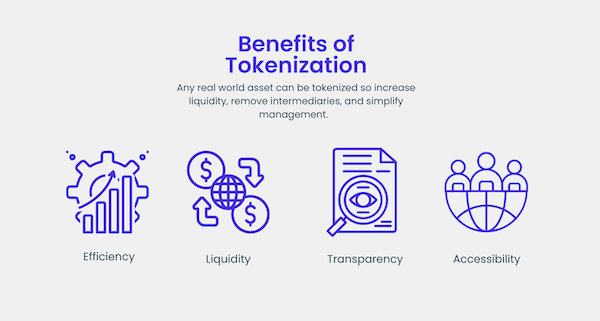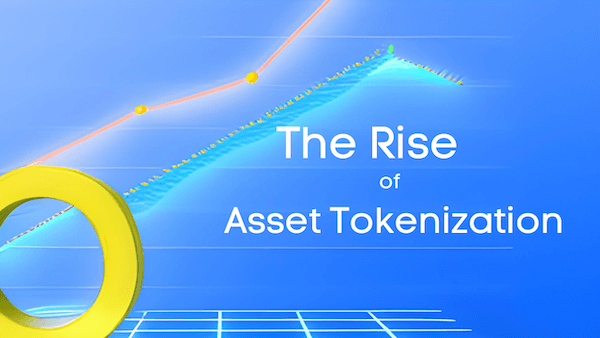Table of Contents
What is Asset Tokenization?
Asset tokenization is the procedure wherein an issuer generates digital tokens on a distributed ledger or blockchain, symbolizing either digital or physical assets. The blockchain ensures that upon purchasing tokens that signify an asset, no singular authority can erase or modify your ownership, leaving your ownership of that asset entirely immutable.

Types of Tokenized Assets
Fungible Asset Tokenization
Fungible assets are interchangeable and mutually interchangeable. They can be represented as tokens that are identical and hold equal value, such as cryptocurrencies like Bitcoin or stablecoins.
Non-Fungible Asset Tokenization
Non-fungible assets are unique and indivisible, making them ideal candidates for tokenization. These assets are represented by Non-Fungible Tokens (NFTs), which have gained popularity in the realm of digital art, collectibles, and even real estate.
What Can be Tokenized?
Virtually any asset with value can be tokenized. Examples of tokenized assets include real estate properties, company stocks, precious metals, art pieces, intellectual property rights, commodities, and more. Tokenization breaks down barriers, allowing investors to access markets that were once reserved for high net-worth individuals or institutions.
Benefits of Asset Tokenization from an Asset Owner's Perspective
Increased Liquidity
Traditional assets often lack liquidity, as selling them can be a lengthy and cumbersome process. Asset tokenization enables fractional ownership, making it easier for investors to buy and sell smaller portions of an asset, thereby increasing liquidity.

Fair Prices
Tokenization opens up asset markets to a larger pool of investors, leading to more competitive pricing based on market demand and supply. This fosters fairer valuations for assets.
Reduced Management Costs
Tokenization eliminates the need for intermediaries in the asset management process, reducing administrative costs and paperwork. Smart contracts on the blockchain automate various tasks, streamlining operations.
Benefits of Asset Tokenization from an Investor's Perspective
Increased Liquidity
Investors benefit from the ability to buy and sell fractional ownership of assets, allowing them to diversify their portfolios easily.
Shorter Lock-Up Periods
Traditional investments often come with long lock-up periods. Asset tokenization allows for greater flexibility, enabling investors to exit investments more readily.
Transparent Process
Blockchain-based asset tokenization offers transparency, as all transactions are recorded on an immutable ledger. Investors can access real-time information, reducing information asymmetry.
Secure Identity
Tokenized assets rely on robust cryptographic techniques, ensuring secure ownership records and protecting investors from fraudulent practices.
The Future of Asset Tokenization

The future of asset tokenization looks promising. As regulations surrounding blockchain technology and cryptocurrencies become clearer, more assets are likely to be tokenized. This will democratize access to various investment opportunities and reshape traditional financial systems.
Conclusion
Asset tokenization represents a groundbreaking paradigm shift in the financial landscape. By converting tangible and intangible assets into blockchain-based tokens, asset tokenization brings numerous benefits to both asset owners and investors.
From increased liquidity and fairer pricing to enhanced transparency and security, the advantages are compelling. As this technology continues to evolve and gain acceptance, asset tokenization holds the potential to democratize finance and reshape the future of investing.
I hope that the information in the article "What is Asset Tokenization? The Rise of Asset Tokenization" by U2U will be helpful to you






